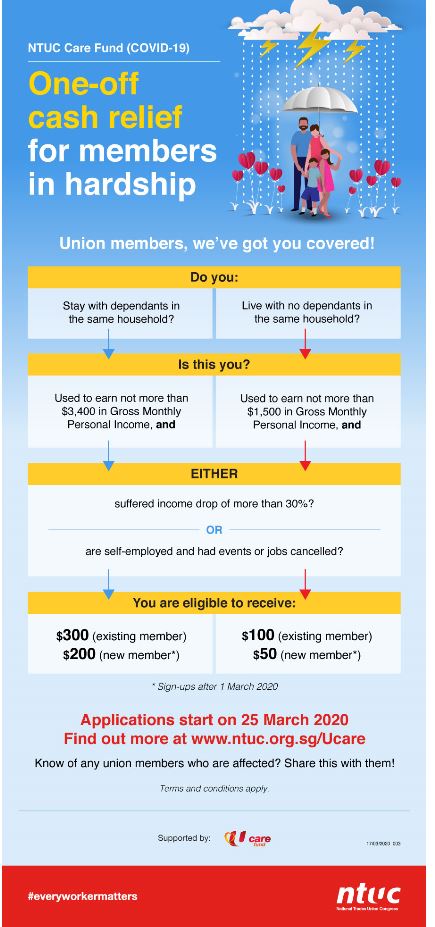Three National Budgets in 48 Days
Deputy Prime Minister and Minister for Finance Heng Swee Keat announced the Unity Budget on 18 February, with measures to cushion the impact of Covid-19. Subsequently, on 26 March, DPM Heng announced a supplementary Resilience Budget to further support families through the pandemic. An additional supplementary Solidarity Budget was announced on 6 April 2020, which will further help families tide through the economic hardships. The package took the country’s total relief package to almost S$60 billion.
The efforts to save jobs and protect livelihoods through wage subsidies and rebates on foreign worker levies, in addition to cash payouts for Singaporeans have been much appreciated. They demonstrate the Government’s to our people to stand in solidarity to fight the pandemic and to save jobs, protect livelihoods and to keep businesses afloat.
Saving Jobs, Protecting Livelihoods

In a bid to save as many jobs as possible, the Jobs Support Scheme (JSS) pays 75% on the first S$4,600 of monthly salaries for each local employee for April and May 2020. The JSS payout was later extended to include shareholders and directors of companies.
There were also measures to help put cash into Singaporeans’ hands. Singaporeans aged 21 and above in 2020 will get an additional cash payout of S$300. Singaporean parents with at least one Singaporean child aged 20 or below will also receive a cash payout of S$300. Further, Singaporeans aged 50 and above in 2020 will receive an additional S$100 in cash.
Support was also rendered to self-employed persons (SEPs) through the Self-employed persons income relief scheme (SIRS). Through this scheme, SEPs will receive three quarterly cash handouts worth S$3,000 each for the months of May, July, and October 2020.
The National Trades Union Congress (NTUC) has also stepped up to assist the Ministry of Manpower to manage applications and appeals of SEPs who will not automatically receive SIRS payouts, to push for more inclusions during this unprecedented crisis.
NTUC is also providing a one-off cash relief of up to $300 to eligible union members who are facing hardship due to the pandemic. The NTUC-U Care Fund is to help low income members tide over daily necessities during this period of economic hardship. There are also other support programmes that union members could look into, be it in terms of financial assistance or training subsidies to upskill.

Creating Jobs
Announced during the delivery of the Resilience Budget, DPM Heng Swee Keat had spoken about SGUnited Jobs Portal which will list 10,000 jobs in the public sector, long-term roles in essential services and short-term jobs to handle the pandemic. NTUC has also started two jobs alert channels on Telegram in early April. These job alerts are under NTUC’s Job Security Council (JSC), first introduced by NTUC’s Secretary-General, Ng Chee Meng. One Telegram channel is for PMET jobs, and the other is for non-PMET positions.
Unfortunately, The Road Ahead Will Be Long and Hard
Singapore companies saw their worst levels of business activities since the Asian financial crisis in Q1 2020. The Covid-19 pandemic has forced the economy to come to a standstill. Economist Tan Khay Boon, a senior lecturer at SIM Global Education, has shared that the near-term implication is that output and investment will decrease significantly while unemployment will rise. For the mid-term, firms will be under even more pressure to cut costs. More jobs will be lost.
We Have Been Through Many Economic Crises. Together, We Can Overcome
Tough times ahead. As a nation, as one people, we will have to find new ways of doing things. We will have to adapt quickly to changes in situations. Since Singapore’s independence, we have survived many economic crises together. And we will be able to emerge stronger as a nation from this one too.
